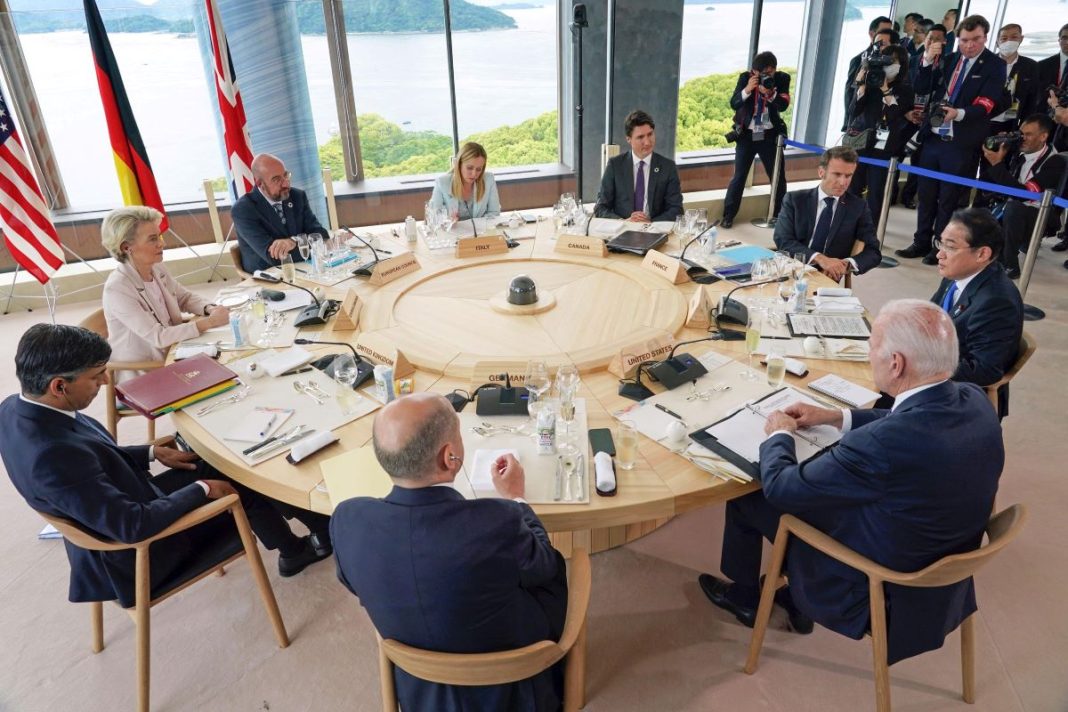Russian Foreign Minister Sergey Lavrov has stated that the decisions made at the G7 summit were aimed to hold back Moscow and Beijing.
“Look at the decisions that are being discussed and adopted today in Hiroshima at the G7 summit and which are aim to deter Russia and the People’s Republic of China,” he said, speaking at the Russian Council on Foreign and Defense Policy.
“It is not hidden that the existence of Russia as an independent center is incompatible with achieving the goal of the global dominance of the West,” the foreign minister added.
In a Saturday joint statement, the G7 leaders in Japan said they agree to “support Ukraine for as long as it takes in the face of Russia’s illegal war of aggression” and to “coordinate our approach to economic resilience and economic security.”
The leaders also mentioned a series of positions related to China, including the need to counter “economic coercion” and protect advanced technologies that could threaten national security, while also stressing that cooperation with Beijing was necessary.
The Chinese Foreign Ministry said in a statement on Saturday that the international community will not fall in line with the pro-Western rules pushed by the G7 and will not allow the US-led group to dominate world affairs.
“China will never accept the so-called rules imposed by the few. The international community does not and will not accept the G7-dominated Western rules that seek to divide the world based on ideologies and values,” the statement read.
The Foreign Ministry went on to accuse the group of acting on behalf of “America-first” policies and attempting to impose its will on others.
“That simply shows how little international credibility means to the G7,” the ministry said.
“Gone are the days when a handful of Western countries can just willfully meddle in other countries’ internal affairs and manipulate global affairs,” it added.
The Group of Seven is an informal club consisting of the US, Canada, Britain, France, Germany, Italy, and Japan. The annual meetings are also typically attended by officials representing the EU.
In a joint communique adopted at the summit in Hiroshima, Japan on Saturday, the G7 listed multiple allegations aimed at Beijing, including technology theft, “economic coercion,” and human rights abuses at home. The group stressed that it strongly opposes “any unilateral attempts to change the status quo by force” regarding Taiwan and the South China Sea.
Beijing responded by saying that “affairs related to Hong Kong, Xinjiang and Tibet are purely China’s internal affairs.” China accused the G7 of endangering peace in the region by providing “support for ‘Taiwan independence’ forces.”
Although G7 members refrain from formally establishing diplomatic ties with Taiwan, the US has sold weapons to Taipei and promised to defend it from a potential attack from the mainland. US politicians have also met with officials from Taiwan, prompting harsh criticism from Beijing, which opposes any form of diplomatic contacts with the Taipei authorities.
